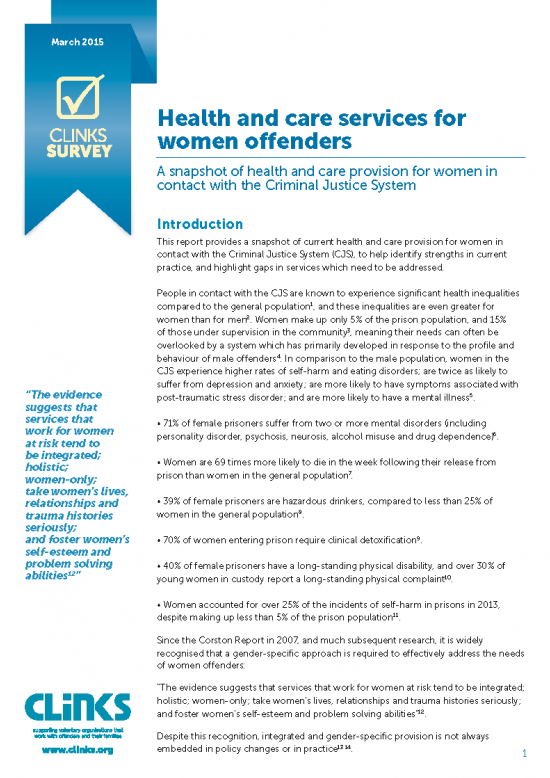
Health and care provision for women with convictions
Our recent survey of health and care provision for women with convictions reveals a mixed picture of service delivery across the country.
In December 2014, Clinks and the Women's Health Equality Consortium surveyed voluntary sector organisations working with women in contact with the criminal justice system to find out more about the health and care needs of the women they work with, and the different ways these organisations seek to address them.
Organisations responding to the survey provide a wide range of health and care services, both directly and through proactively seeking to help women engage with mainstream health services. Much of this good work is achieved through strong partnerships with a range of different organisations.
Despite this, the survey highlighted a number of areas where support needs to be improved to successfully address the health inequalities experienced by women in contact with criminal justice agencies. These include:
- limited availability of, and high thresholds for, mental health services
- a lack of trauma-informed services and support for women with post-traumatic stress disorder
- gaps in provision for those with complex but low-level needs, or with dual diagnois of mental health and substance misuse needs
- challenges in sharing information and making referrals between services
- poor understanding of the role of the voluntary sector amongst some statutory health providers, especially GPs.